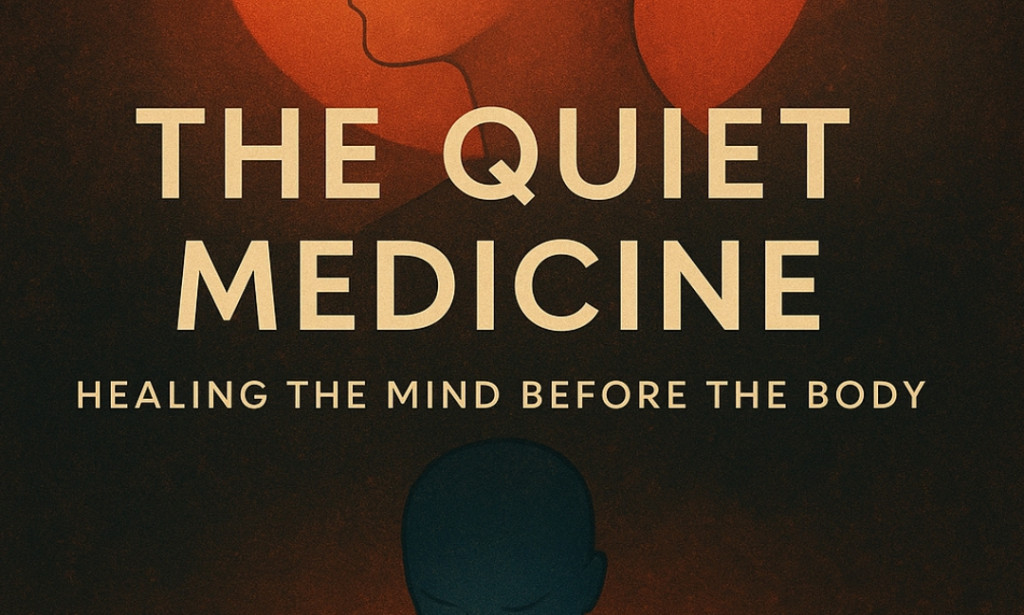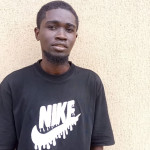Health is more than the absence of pain; it’s the presence of harmony. Before the body heals, the mind must remember its own rhythm. This reflective essay explores the art of self-healing, mindfulness, and the deep connection between emotions, thoughts, and well-being. In a world chasing quick cures and perfection, true healing begins where no pill can reach — in the quiet restoration of the mind. Let's explore how awareness, balance, and inner peace shape real health.
---
The Forgotten Beginning
In today’s age of acceleration, we chase performance more than peace. Our days begin with screens, and our nights end in scrolling. Then the body runs on caffeine and obligation, while the mind drowns in information it cannot fully digest.
We treat fatigue as a badge of honor, anxiety as the price of ambition, and rest as luxury. Yet beneath all the noise lies a truth older than medicine: that healing begins before the body — but in the mind.
The ancient physicians knew this. So did the elders who gathered beneath trees to sing healing songs for the soul before tending to the wound. Health was never separate from thought or spirit; it was the rhythm between them. When that rhythm is lost, imbalance appears — first in thought, then in flesh.
---
The Body Remembers Everything
Science and spirituality may speak different languages, but both agree on this: that the body listens to the mind. Every thought has a pulse. Every emotion has chemistry. Stress floods the bloodstream with cortisol, tightening the chest.
Grief slows immunity. Joy restores heartbeat rhythm. What we call “good energy” is not mysticism — it’s a nervous system that feels safe.
When the mind feels threatened, the body lives in defense: of shallow breath, tense shoulders, restless nights. When the mind feels peace, the body follows: steady pulse, deep rest, natural healing. Your body is not your enemy. But it is your witness — a living journal that records every suppressed word, every ignored sadness, every unspoken desire. And it listens even when you don’t. Because healing begins when you start listening back.
---
Healing as Remembering
True healing is not acquisition. It is a remembrance. There was a time when we healed in circles, not in isolation. Communities gathered to share grief, to sing, to drum the heart back into rhythm. The body healed because it was seen, held, and understood. Today, medicine often treats the symptom but forgets the story.
But every illness tells one: of exhaustion, disconnection, or unexpressed emotion. A backache may carry the weight of unspoken responsibility. A headache may echo overthinking.
Even chronic fatigue can be the soul’s quiet rebellion against a life lived too fast. To heal, we must listen not just to pain, but to what it’s trying to teach. Healing, then, is the art of remembering that the body is sacred — not a machine to optimize, but a temple to honor. And the temple asks not for perfection, but only presence.
---
The Science of Stillness
Modern neuroscience confirms what the sages intuited: that thoughts sculpt biology. Neurons wire together through repetition. A single anxious thought rehearsed daily becomes chemistry — a habit etched into the body. But so does gratitude. So does calm.
When you observe your thoughts instead of obeying them, you change the conversation between brain and body. Mindfulness lowers heart rate, deepens breath, and releases the tension of patterns stored in muscle memory. This is not mysticism; it’s physiology returning to balance. The quiet mind signals safety. And safety, not struggle, is the soil where healing grows.
---
Slowing Down as Medicine
The body has its own rhythm — inhale, exhale; wake, rest; rise, fall. But our modern tempo has no pause. We eat without tasting. Scroll without seeing. Sleep without resting. The nervous system never gets to exhale. Stillness is not idleness. It’s the original rhythm of creation.
When you slow down, you don’t lose time — you reclaim it. Because each pause is an invitation to breathe yourself back into being. In those quiet spaces — a walk without your phone, a meal eaten with gratitude, a deep conversation with silence — your cells begin to trust you again. In this sense that trust is healing.
---
Ancient Roots, Modern Paths
Long before “wellness” became an industry, healing was a way of living. In Yoruba philosophy, health (ilera) means harmony between body, mind, and destiny. In Taoist thought, balance between "yin and yang" ensures vitality. In Ayurveda, disease begins in imbalance — not just of organs, but of purpose and perception.
These traditions remind us that health is relational: how we treat our bodies, each other, and the earth. When the land is poisoned, we are poisoned. When community fragments, individual anxiety rises. Healing, therefore, is ecological — it belongs to the whole. A healthy life cannot be built on disconnection.
---
The Mind as Healer, Not Controller
Western culture often frames the mind as a problem to fix — full of errors, biases, and dysfunctions. But the mind is also the healer, the inner physician. When you meet your thoughts with compassion, they soften. When you witness your fear instead of fighting it, the body begins to release.
You don’t need to “control” the mind — only understand it. Self-healing begins the moment awareness replaces judgment. Because the body believes what the mind repeatedly says. If you tell it, “I am broken,” it contracts. If you whisper, “I am safe,” it begins to open.
---
The Discipline of Inner Peace
Healing is not an event; it is a discipline. A daily practice of choosing presence over panic. Of noticing the breath. Of forgiving what yesterday could not understand. You can eat organic, jog daily, and still feel unwell if your soul is starving for rest.
Likewise, you can live modestly, breathe deeply, and find serenity even in difficulty. The difference is attention. Health grows where attention goes. True peace is not passive — it is conscious alignment with life itself. The immune system thrives not on supplements alone, but on a sense of safety and gratitude.
---
Stories as Medicine
Sometimes, healing begins with a story. A person shares their pain — another listens without interruption. In that exchange, something invisible shifts. This is why narrative medicine is now studied in clinics; and stories integrate emotion with physiology.
You do not heal by avoiding your wounds; you heal by giving them language. By saying: this happened, but it does not define me. By turning pain into wisdom. Every healed person becomes medicine for someone else.
---
Returning to Wholeness
Health is not perfection. It is presence. It is the capacity to meet life — its storms and silences — with awareness. To live well is to live connected: to the body’s signals, to the heart’s rhythm, to the earth’s cycles. Every breath is an opportunity to return.
Because every small act of kindness — even toward yourself — is a form of healing. The future of health will not only be digital or clinical. It will be human — rooted in emotion, compassion, and collective balance. It will remember what we once knew: that medicine begins not in the laboratory, but in consciousness.
---
The Way Forward
To heal is to remember the body’s original song. To live slowly enough to hear it again. To speak gently enough that your cells feel safe. To rest deeply enough that your dreams rebuild you.
Healing is not an escape. It is a return — to the simple truth that you are alive, whole, and capable of peace.
---
Keywords
healthy lifestyle, mental wellness, holistic healing, mindfulness, body awareness, mental health, self-healing, mind-body connection, emotional health, stress management, balance, meditation, healing journey.
---
Author Note
Lucky Young Omorogbe is a Nigerian cultural writer and speculative thinker exploring the intersections of ancestral wisdom, psychology, and digital consciousness. Through essays and storytelling on LodPost.com, he reflects on healing, resilience, and the sacred architecture of being human.


When that rhythm is lost, imbalance appears — first in thought, then in flesh.
You must be logged in to post a comment.